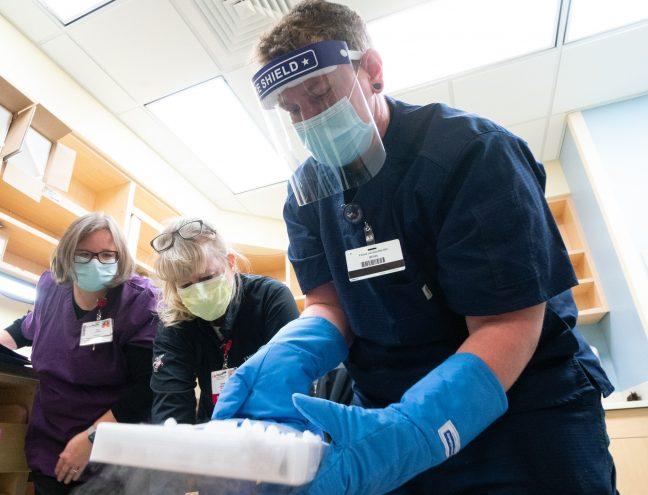May 1 is the nation’s new deadline to make all adults eligible for the COVID-19 vaccine. Following a year of social distancing and isolation, most Americans are ready to put the pandemic behind them and go back to ‘normal’ — whatever that may be in a post-COVID America. But with already long waits to receive a vaccine under the current guidelines, how much will change come May 1?
At the moment, vaccines are available to around two million people in Wisconsin. The current group is made up of anyone 16 years or older with any of the conditions outlined by the Department of Health Services along with anyone eligible from prior groups. When the state opens eligibility — with the rest of the country — to all adults on May 1, many in this latest group will still need to receive the vaccine.
To compound the delay, Wisconsin is failing to keep up with vaccine demand. Though not entirely in the state’s hands as we wait for both the federal government and vaccine producers to allocate doses to the state, we are already falling behind. As of writing, DHS is reporting the state is sitting with around 150 thousand doses of the vaccine free and only two and a half million doses administered.
What’s especially important to note is “doses” are not equivalent to fully vaccinated people. With less than 50 thousand of the one-dose Johnson & Johnson administered, the remaining two million doses only equate to around one million people.
With roughly 700 thousand waiting on their second dose of the vaccine, there are presumably at least another 1.3 million people yet to receive their vaccine in this latest group.
With total doses administered rising from our current 316 thousand a week record by around 20 thousand every week, we’re still looking at another month before this latest group has received at least one shot, not accounting for the 700 thousand people who have one shot and will need to get in for their second shot.
Even with these rough estimations, it’s clear we are falling behind. And that’s not to say we are doing poorly — with 27.6% of our state with at least one shot, Wisconsin is doing better than most states. Further, the U.S. currently has the 7th most vaccinated population in the world. But we must ask why we should open the vaccine to more people when we are still behind in distributing to currently eligible groups?
Short of making the Biden administration look better, something they have already accomplished by doubling the promised 100 million vaccines in 100 days, I fail to see why suddenly making all adults eligible will help.
With clinics and pharmacies already working hard enough to vaccinate our current eligible groups, why add millions more on? Millions will start calling and asking for the vaccine and ultimately get turned away because we just don’t have the physical vaccines yet.
We are still running short on vaccines for our current eligibility groups, therefore, setting an arbitrary date for universal availability seems self-limiting and will ultimately disappoint when eligible adults are unable to find a vaccine.
Until we can make a more significant dent in our current eligibility, opening it up to millions of people is unproductive.
False hope is a dangerous factor in controlling the pandemic. With the end of the pandemic so close, telling people they can get the vaccine in May is setting up unrealistic expectations for our current system.
The last thing we want is for people to begin taking greater risks because they think they will be vaccinated in a week.
Ultimately, the most important thing is to continue social distancing, wearing a mask and staying safe until we have the infrastructure and vaccine supply we need to truly vaccinate all eligible adults.
May 1, when eligibility opens for everyone, we must be patient with the healthcare workers who have fronted the vaccine rollout from day one.
Ryan Badger (rbadger2@wisc.edu) is a sophomore majoring in political science.


